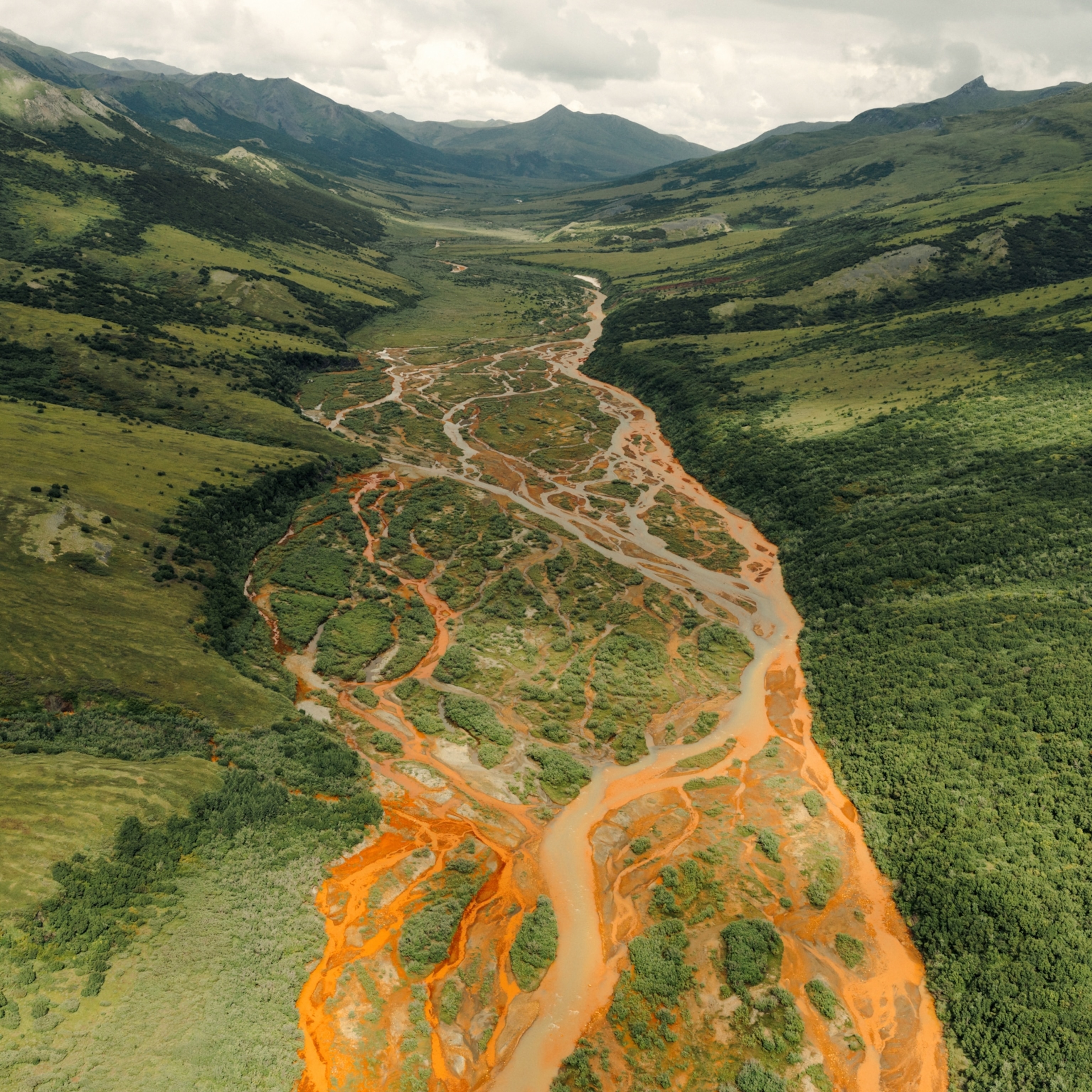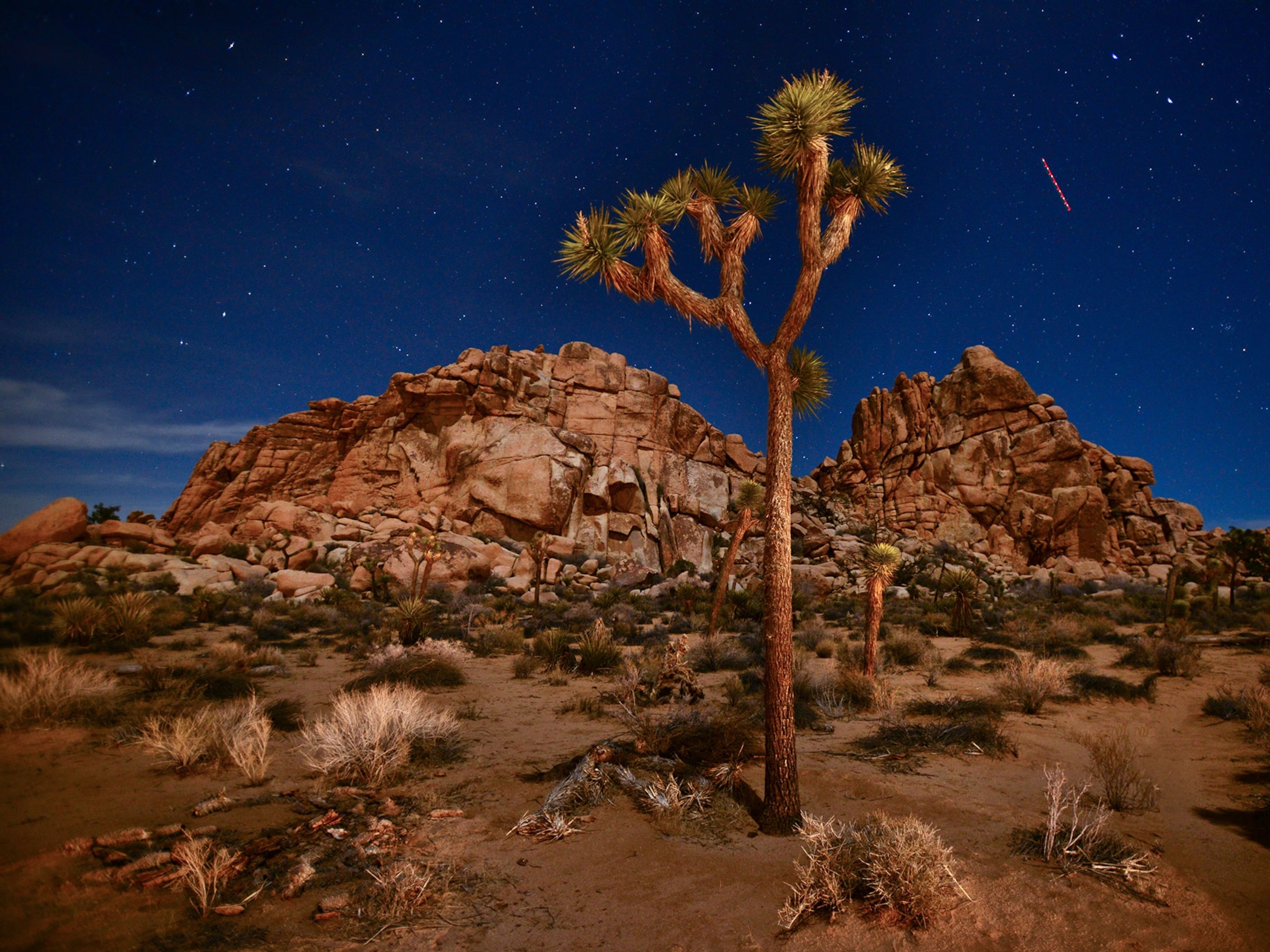
Underground "Fossil Water" Running Out
Underground "Fossil Water" Running Out
This story is part of a special series that explores the global water crisis. For more clean water news, photos, and information, visit National Geographic's Freshwater website.
In the world's driest places, "fossil water" is becoming as valuable as fossil fuel, experts say.
This ancient freshwater was created eons ago and trapped underground in huge reservoirs, or aquifers. And like oil, no one knows how much there is—but experts do know that when it's gone, it's gone. (See a map of the world's freshwater in National Geographic magazine.)
"You can apply the economics of mining because you are depleting a finite resource," said Mike Edmunds, a hydrogeologist at Oxford University in the Great Britain.
In the meantime, though, paleowater is the only option in many water-strapped nations. For instance, Libya is habitable because of aquifers—some of them 75,000 years old—discovered under the Sahara's sands during 1950s oil explorations.
The North African country receives little rain, and its population is concentrated on the coasts, where groundwater reserves are becoming increasingly brackish and nearing depletion.
Since Libyan President Muammar Qaddafi launched his Great Man-Made River Project in the 1980s, an epic system of pipes, reservoirs, and engineering infrastructure is being built. It will be able to pump from some 1,300 paleowater wells and move 230 million cubic feet (6.5 million cubic meters) of H2O every day.
But while fossil water can fill critical needs, experts warn, it's ultimately just a temporary measure until conservation measures and technologies become status quo.
Radioactive Worries
Engineers in Jordan hope that the country's large fossil-water resources can help stem its chronic water shortage.
They envision a system that can move 3.5 billion cubic feet (99 million cubic meters) of water each year over a mostly uphill, 200-mile-long (320 kilometer-long) stretch from the remote southern desert to the capital city of Amman.
The U.S. $600 million project aims to tap Jordan's last primary water reserve, the Disi aquifer, on the border with Saudi Arabia.
But the project has encountered an unexpected stumbling block. The Disi's fossil water was recently found to contain 20 times the radiation levels considered safe for drinking. The water is contaminated naturally by sandstone, which has slowly leached radioactive contaminants over the eons.
Geochemist and water-quality expert Avner Vengosh of Duke University, one of the scientists who first discovered the problem, said the Disi's situation is not unusual.
Radiation contamination has been found in Israel, Egypt, Saudia Arabia, and Libya, Vengosh said.
Fortunately, radiation contamination can be fixed through a simple water-softening process, though it does cost money and creates radioactive waste that must be disposed of properly, he noted.
Troubled Waters
Bringing fossil water to the surface may cause other water quality issues. When aquifers are depleted, they can be subject to an influx of surrounding contaminants such as saltwater—a particular problem near coastal areas.
Also, like oil fields, depleting fossil water aquifers too quickly can reduce underground pressures and render large quantities of water essentially irretrievable.
Like the Jordanians, the Saudis already draw water for drinking and agriculture from the Disi, which Saudis call the Saq aquifer.
Saudi Arabia has also attempted tapping fossil waters. In 2008 a long-running program to sustain a nascent wheat industry with fossil water was scrapped; it simply sucked up too much rare water. The government intends to rely entirely on wheat imports by 2016, experts say.
(Learn more about global agriculture’s thirst for water.)
Is That Fossil Water You're Drinking?
Oxford's Mike Edmunds said desert nations are only the obvious users of fossil water. In fact, many people may be using it, and using it up, without knowing.
(See: "Vast Buried 'Fossil Lake' Reported in Darfur.")
Globally, wells are often drilled to about 320 feet (100 meters), Edmunds said. "Quite possibly only the top couple of meters of that are recent water. It's pretty obvious in Saudi Arabia or Libya, but that may be the case even in many places that aren’t particularly arid.
"People think about quantity when they are pumping, they don't ask about renewability as much—and that’s the big issue."
Though determining the vintage of such water isn't easy, said Duke's Vengosh, telltale signatures can help: Scientists look for radioactive isotopes that have been present in Earth's atmosphere only since humans initiated the nuclear era.
"In a very arid region one could argue that it doesn't matter" how old the water is, Vengosh said. "But in semi-arid areas, the ability to delineate between fossil water and replenished groundwater is always important."
Testing the Waters With New Technologies
Technological advances are also helping scientists get a handle on just how much water can be found in a given locale.
For instance, the European Space Agency's AQUIFER project uses satellite imagery to estimate water resources from space and help aid transborder management, according to geophysicist Stefan Saradeth.
The team examined parts of the Sahara and Sahel deserts, using proxies such as irrigation patterns, crop patterns, and changes in soil after pumping water.
"If there’s exploitation going on in terms of water or hydrocarbons, you see a minute lowering of the land surface, which we can measure from space on a millimeter scale," Saradeth said.
Such water-availability information is intended to help nations work together and share a critical resource.
“Every country can look beyond its own borders and see what’s going on," he said.
Other technologies can measure fossil water reserves more directly. In northern India, where New Delhi and Jaipur are draining fossil-water reserves along with water recharged by the annual monsoons, scientists used NASA's Gravity Recovery and Climate Experiment (GRACE) to measure aquifer use.
When underground reservoir levels change, they slightly alter Earth's gravitational field—just enough to be detected by GRACE satellites 300 miles (480 kilometers) above the surface. That data is used to map water use. In northern India, they produced a disturbing picture.
The NASA study found that humans are using more water than rains can replenish, and area groundwater levels declined by an average of one foot (30 centimeters) per year between 2002 and 2008.
(Explore an interactive on our hidden water use.)
Time—and Water—Running Out
In other nations the crisis is far more immediate—especially in Yemen, said Oxford's Mike Edmunds. The Middle Eastern country depends on fossil water—but can't expect to do so for much longer, according to Edmunds. "The Sana'a Basin is down to its last few years of extractable water," he said.
Worsening the situation is Yemen's tenuous government, shaky economy, and role as a haven for terrorists.
No one knows what will happen when it runs out—but Yemen’s fossil water will soon be a thing of the past.







